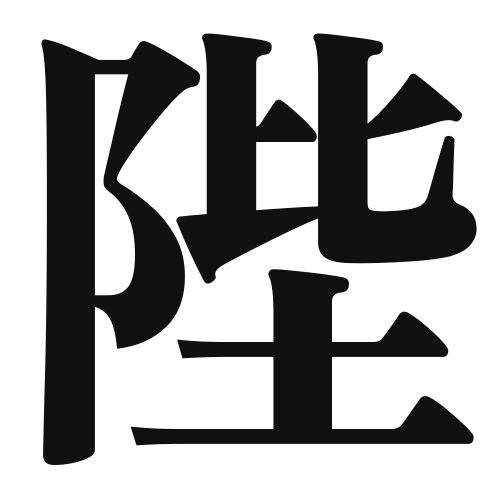1. Overview of Meaning
The kanji “陛” (hei) is used to refer to a high-ranking person, particularly in a royal or imperial context. It conveys a sense of respect and elevation, often associated with addressing emperors or monarchs.
2. Formation and Radical
Formation of the Kanji: The kanji “陛” is a phonetic compound (形声文字), which combines the meaning of the radical with a phonetic component. The left part “阝” (a variant of the radical for “mountain” or “hill”) suggests a geographical elevation, while the right part “也” provides the phonetic sound.
Radical: The radical for “陛” is “阝,” which relates to hills or mounds, emphasizing the elevated status of the subject it describes.
3. Examples of Usage
Common Words and Phrases: “陛下” (heika) meaning “Your Majesty” is a frequently used term when addressing a king or emperor.
Example Sentence in Daily Conversation: “陛下、どうかお元気でいらっしゃいますように。” (Heika, douka ogenki de irasshaimasu you ni.) translates to “Your Majesty, I hope you are in good health.”
4. Synonyms and Antonyms
Similar Kanji: “王” (ou) meaning “king” is a related term, but it refers specifically to a king rather than the broader concept of royalty or elevation implied by “陛.”
Antonyms: “平” (hei) meaning “flat” or “level” represents the opposite concept of elevation and respect associated with “陛.”
5. Cultural and Historical Background
Relation to Japanese Culture: The kanji “陛” is deeply rooted in the historical context of the Japanese imperial system, where respect for the emperor is paramount. It reflects the hierarchical nature of Japanese society.
Proverbs and Idioms: While there are no specific proverbs that use “陛,” the term is often found in formal contexts, emphasizing the importance of respect and honor in addressing authority figures.
